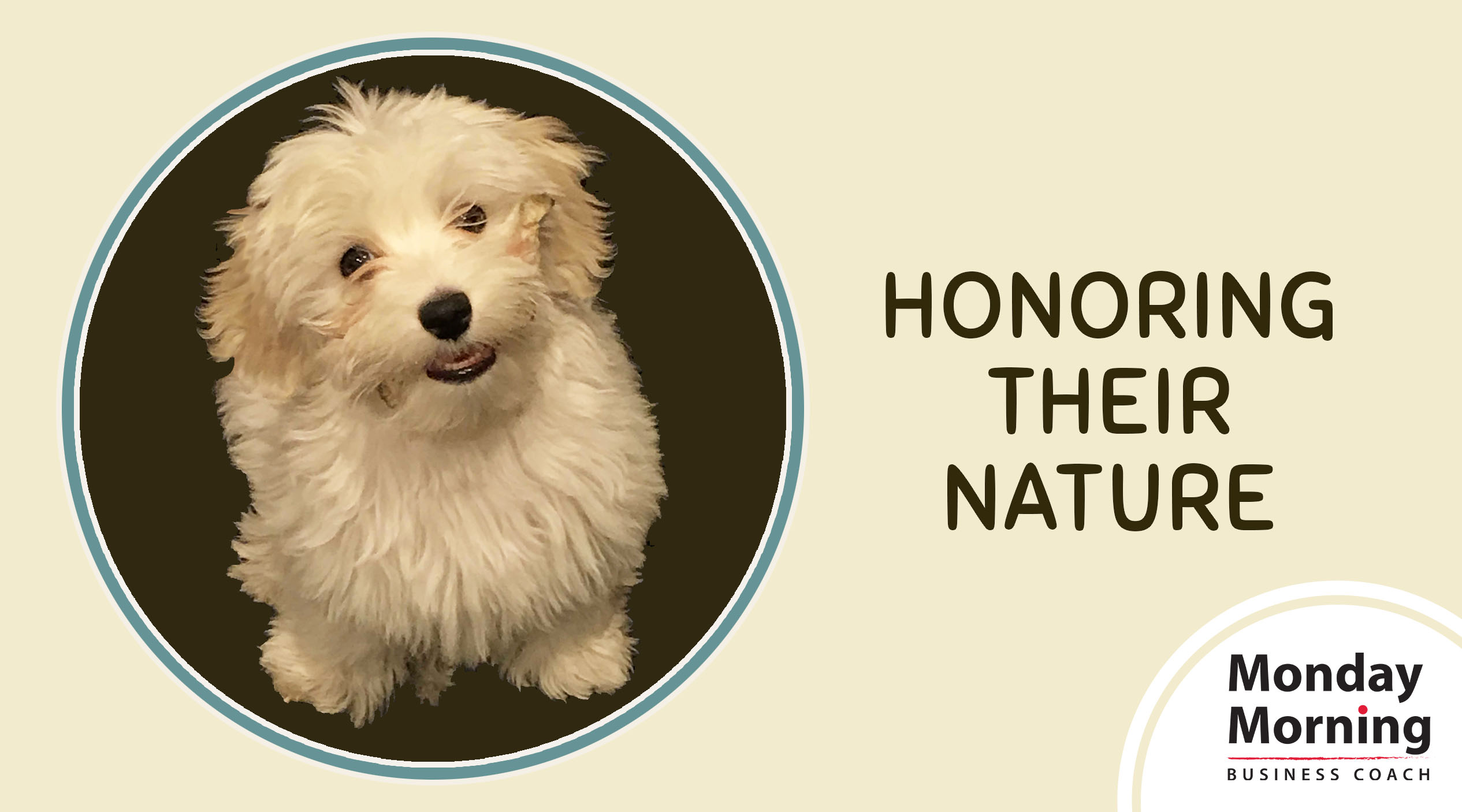This is the final week in our series, What Puppy Training Can Teach You About Leading and Managing. Thank you for sharing your thoughts and your stories about puppy training and/or managing in your own lives.
Many of you reported that sharing our puppy-training experiences helped you to more deeply understand how complex and nuanced it is to lead and manage people, and that simplifying it by thinking about puppies helped you in your leadership.
This week, we’re talking about working with
natural behaviors to achieve stellar results.
Again, it’s easier to think about this with dogs because their breeds are so obvious; yet, we humans are as different from one another as dogs of different breeds. As people, it can be hard to remember that our unique inherent natures make us quite diverse.
As you may recall, our model for this series is a young Havanese, a breed that originated in Havana, Cuba, and was bred for sitting on laps and looking cute. They do that well.
At 12–15 pounds, Havanese love their people and are happy to sit and snuggle. Compare that with a Border Collie that typically weighs 31–42 pounds and was bred to control and gather sheep in the UK. If you have a small apartment and a consuming job, you might do better to have a Havanese that will sit easily with you in the evenings, rather than a Border Collie, a working dog, who will be agitated and restless because he or she hasn’t run and worked all day.
Both breeds can be taught to sit with you in the evening while you work, but it will definitely be easier for the Havanese than the Border Collie. The Border Collie, with its energy, stamina, and drive, will often seem to “get in trouble,” even though it’s only doing what is true to its nature—herding others and taking control.
Consider the nature of the individuals on your team
or in your office as you think about how
to help them develop their skills.
When you have a job that calls for attention to detail, consider who has a natural affinity to detail. When you have a job that requires a lot of emotional intelligence, consider someone who does this naturally.
Of course, there will be times when you need to help someone develop a skill that isn’t exactly inherent in their nature. Just remember that they’ll need more practice to develop their skill and, from time to time, they may need to return to basics to get back on track.
You will always be most successful as a leader and manager when you trust that each individual is different. These differences can be the key to success if you take the time to understand them, work with them, and reward them.
We humans are complex with diverse behaviors and abilities.
If you’d like support to create greater team success by working with and honoring your employees’ natural behaviors, let us know.

